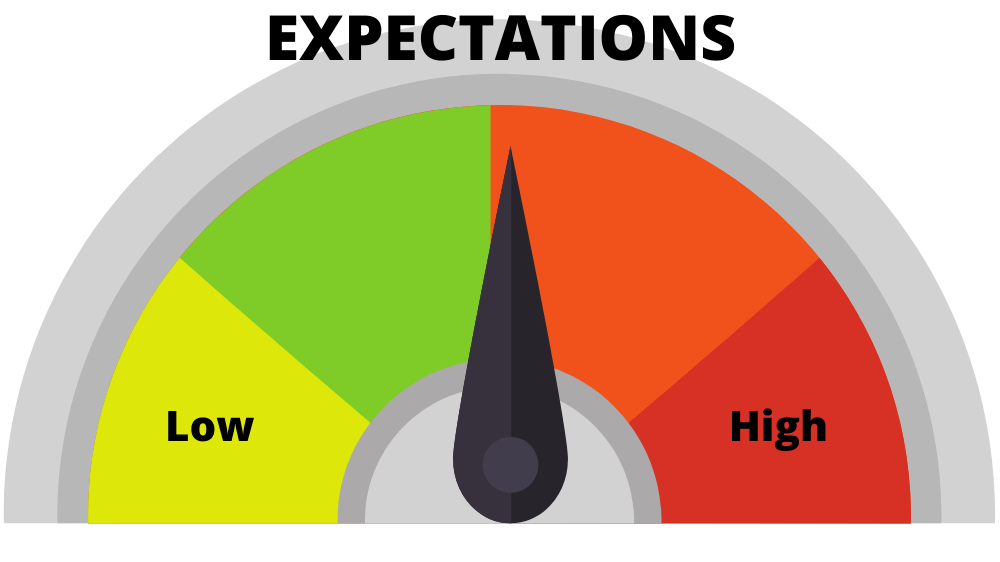Low Expectations are a Form of Casual Ableism
When I was an administrator of a disability discussion group, I advocated banning a member who was trolling another moderator. This individual was rude, condescending, and arrogant. Simply put, her behavior violated the conduct standards we had upheld on numerous occasions. Yet the group’s chair emphasized that if we were to ban this member, it would only be a temporary dismissal. The reason for the leniency? The woman had a mood disorder.
In other words, because of her mental illness, this individual might be given a second and third and fourth – and who knows how many chances. As a person suffering from a mood disorder herself, I object to this example of the casual ableism of low expectations: namely, the idea that those with disabilities are incapable of adhering to the same conduct standards as the rest of us.
While it is imperative that people with mental illnesses be given the support we need to succeed in a collaborative environment, it is ableist to assume that people with PTSD, bipolar disorder, and any number of conditions are incapable of following rules. If reasonable accommodations amount to an occasional second chance, then that is certainly fair. But to insinuate that such standards are verboten for the mental health community is profoundly bigoted.
Regrettably, low expectations for disabled people permeate American society. When I announced to the chair of a local political party that I was considering a bid for a prestigious position, for instance, I was met by an insidious form of ableism. The chair told me that my chances were nil, and instead of encouraging me to run against an established opponent, he said he would create a special disability position for me. In short, instead of being involved with the state party’s legislative body, I would be tasked with working on disability inclusion at the local level.
Without ever asking to see my resume, which has included nearly a decade of leadership in nonprofits and politics, the now-former chair dismissed me because I was a disabled person. All he knew was that I was involved in disability politics; as a result, he perceived me to only have utility as a token for a class of people he deemed incapable. Had I accepted the offer, the chair would have created an affirmative action position with incredibly low expectations, while other people in our group in my same age bracket were moving up the political ladder – even if they had less experience than I did.
Outside of the political arena, the casual ableism of low expectations extends to education. A sibling of mine who was struggling in school received a letter in the spring of his eighth grade year stating that he would be transitioned to “basic math.” Instead of targeting why he was struggling – he had focus and attention issues – the school simply sent a note to our parents with a letter couching the demotion in politically correct language.
Three years his senior, I knew that being placed in remedial math meant he wouldn’t get credit for four years of high school mathematics; in short, these low expectations would have been a major roadblock for his future career. I knew I had to intervene, and had a discussion with my Mom and Dad. Although my brother had to attend tutoring all summer, he took regular math classes in high school and now works on Wall Street for a Big Four Financial Services firm. Had his focus and attention problems been recognized by the school earlier, he may never even have struggled in the first place.
How can we combat the low expectations too often foisted upon disabled people? The answer is through continued education and activism. The more we speak out about our identities, the more we normalize the idea that disabled and chronically ill people can be every bit as successful as anyone else. Instead of dismissing us the moment we have a setback, we must advocate for the accommodations we need to succeed. Only through a culture-wide dedication to disability justice and equity shall we move beyond the casual ableism of low expectations.
About Rooted In Rights
Rooted in Rights exists to amplify the perspectives of the disability community. Blog posts and storyteller videos that we publish and content we re-share on social media do not necessarily reflect the opinions or values of Rooted in Rights nor indicate an endorsement of a program or service by Rooted in Rights. We respect and aim to reflect the diversity of opinions and experiences of the disability community. Rooted in Rights seeks to highlight discussions, not direct them. Learn more about Rooted In Rights



Research is helping me learn more on topics like this topic. Doctoral Candidate .